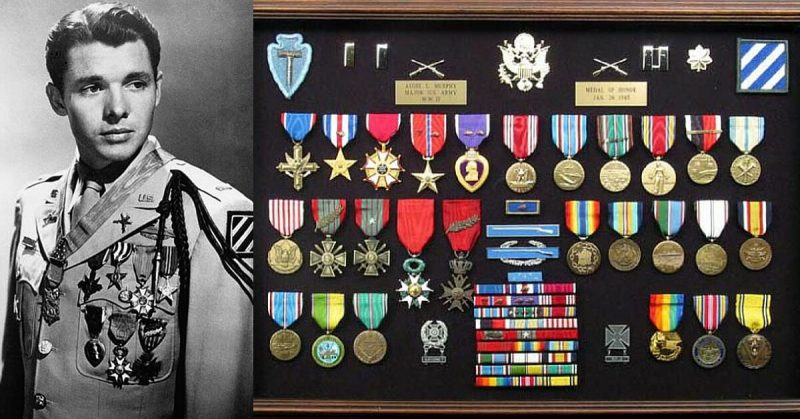The United States has a rich history of valor and sacrifice, exemplified by the men and women who have served in its armed forces. Among these, certain individuals stand out not only for their military achievements but also for the lasting impact they have left on the nation. Here, we pay tribute to ten of America’s most beloved veterans, whose courage, leadership, and dedication continue to inspire generations.
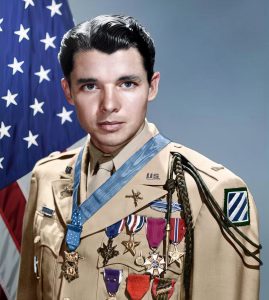
1. Audie Murphy.
Audie Murphy’s story is one of triumph over adversity. Born into poverty in Texas, Murphy was initially rejected by the Marine Corps and paratroopers due to his slight build. Undeterred, he enlisted in the infantry and went on to become one of the most decorated combat veterans in history. His journey through Sicily, Italy, France, and Germany during World War II was marked by extraordinary bravery, earning him the Medal of Honor, among other accolades.
Despite his heroism, Murphy’s post-war life was marked by struggles. Haunted by the horrors of war, he suffered from nightmares and lived with the scars of his experiences. Even as he transitioned into a successful film career, Murphy never fully escaped the demons that war had instilled in him. His autobiography, “To Hell and Back,” reflects the profound impact of combat on his life, a reminder of the heavy price heroes often pay.
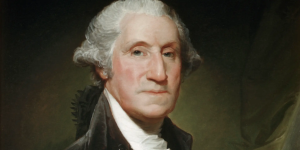
2. George Washington.
George Washington’s name is synonymous with American independence. Long before he became the nation’s first president, Washington was a seasoned military leader. His early experiences during the French and Indian War prepared him for the monumental task of leading the Continental Army against the British during the Revolutionary War.
Washington’s leadership was pivotal during the war, particularly in the face of adversity. Despite numerous challenges, including a lack of resources and support, he maintained the resolve of his troops, inspiring them through his personal courage and unwavering commitment. His victory at the Battle of Trenton, following the famous crossing of the Delaware River, is celebrated as a turning point in the fight for independence. As both the father of his country and the U.S. Army, Washington’s legacy continues to be a source of inspiration.
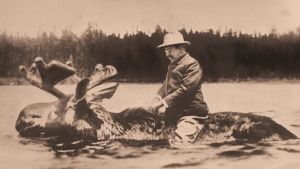
3. Theodore Roosevelt.
Theodore Roosevelt, known for his larger-than-life personality, is celebrated as one of America’s most dynamic leaders. Before he became president, Roosevelt gained fame for his role in the Spanish-American War. Leading the Rough Riders, a volunteer cavalry regiment, he demonstrated remarkable bravery during the Battle of San Juan Heights in Cuba. This “crowded hour,” as he described it, became a defining moment in his life.
Roosevelt’s military service was just one chapter in a life filled with public service. As president, he strengthened the U.S. Navy and ensured that America’s military power was respected worldwide. His legacy as a beloved veteran is further solidified by his posthumous awarding of the Medal of Honor, recognizing the bravery he displayed on the battlefield.
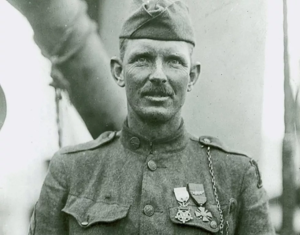
4. Alvin York.
Alvin C. York, a humble man from Tennessee, became one of World War I’s most famous soldiers. Known for his sharpshooting skills, York’s defining moment came during the Meuse-Argonne Offensive in 1918. Facing overwhelming odds, York single-handedly took out a machine-gun nest, killed several enemy soldiers, and captured 132 Germans.
Despite the accolades that followed, including the Medal of Honor, York remained grounded, returning to his Tennessee home and dedicating his life to education. He established the York Agricultural Institute, ensuring that the children in his community had access to education—a cause he believed was as vital as his wartime service. York’s legacy endures not only through his battlefield heroics but also through his commitment to bettering the lives of others.
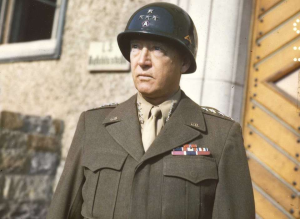
5. George Patton.
General George S. Patton is remembered as one of the most formidable military leaders in American history. His leadership during World War II, particularly in the North African and European theaters, was instrumental in the Allied victory. Patton’s aggressive tactics and ability to inspire his troops made him a feared and respected figure on the battlefield.
Patton’s success was evident in numerous campaigns, including the invasion of Sicily and the rapid advance across France. His leadership during the Battle of the Bulge, where he relieved the besieged town of Bastogne, further cemented his reputation as a brilliant strategist. Known for his no-nonsense attitude and unwavering belief in victory, Patton remains a symbol of American military might and determination.
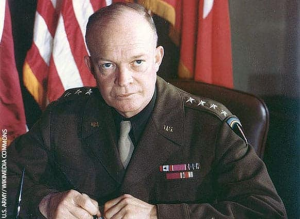
6. Dwight Eisenhower.
Dwight D. Eisenhower, the Supreme Commander of the Allied Expeditionary Force, played a crucial role in leading the Allied forces to victory during World War II. His most famous achievement was orchestrating the D-Day invasion on June 6, 1944, a turning point in the war that led to the liberation of Western Europe from Nazi control.
Eisenhower’s leadership extended beyond the battlefield. After the war, he was elected president, where he guided the nation through the early years of the Cold War. His calm demeanor, strategic thinking, and dedication to peace earned him the respect of both his military peers and the American public. Eisenhower’s legacy as a leader who prioritized mission success and the well-being of his troops is a testament to his enduring influence.
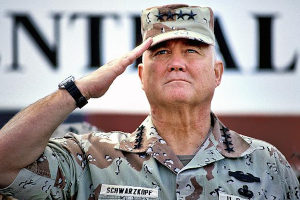
7. Norman Schwarzkopf.
General Norman Schwarzkopf, affectionately known as “Stormin’ Norman,” became a household name during the Gulf War. As the commander of Coalition forces, Schwarzkopf led the successful Operation Desert Storm, which liberated Kuwait from Iraqi occupation. His leadership and strategic acumen were instrumental in achieving a swift and decisive victory.
Schwarzkopf’s ability to build a coalition of nations, including Arab states, showcased his diplomatic skills and understanding of the geopolitical landscape. His care for the troops under his command and his articulate communication with the public earned him widespread admiration. After the war, Schwarzkopf continued to serve his country in various capacities, leaving a legacy as a leader who embodied both strength and compassion.
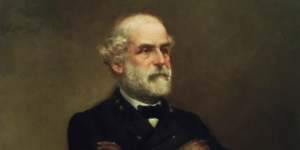
8. Robert E. Lee.
Robert E. Lee’s legacy is one of complexity, marked by his role as a Confederate general during the Civil War. Despite his decision to fight for the Confederacy, Lee’s military prowess and leadership are widely recognized. He transformed the Army of Northern Virginia into a formidable force, achieving several significant victories despite being outnumbered and under-resourced.
Lee’s decision to surrender at Appomattox Court House in 1865, rather than prolong the conflict, is often seen as an act of mercy for his troops. After the war, Lee devoted himself to education and reconciliation, serving as president of Washington College (now Washington and Lee University). His post-war efforts to promote unity and healing contribute to his enduring legacy as a respected military leader.
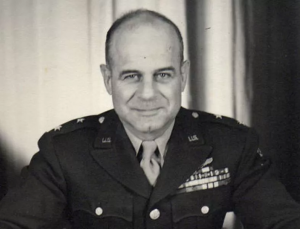
9. Jimmy Doolittle.
Jimmy Doolittle is best known for leading the audacious Doolittle Raid on Tokyo in April 1942. This daring air raid, conducted just months after the attack on Pearl Harbor, was a morale booster for the United States and a blow to Japanese confidence. Doolittle’s leadership during this mission earned him the Medal of Honor.
Beyond his military achievements, Doolittle was a pioneering aviator and engineer. He made significant contributions to aviation, including the development of 100-octane fuel and advancements in instrument flying. His legacy as a fearless leader and innovator in both military and civilian aviation continues to inspire.
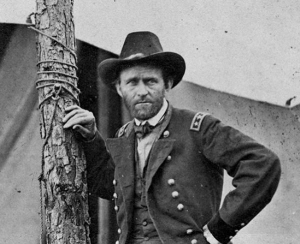
10. Ulysses S. Grant.
Ulysses S. Grant, the Union general who played a crucial role in winning the Civil War, is remembered as a determined and effective leader. Grant’s victories at Fort Donelson, Shiloh, Vicksburg, and Chattanooga showcased his strategic brilliance and earned him the trust of President Abraham Lincoln. His leadership ultimately led to the surrender of Confederate forces at Appomattox, effectively ending the war.
After the war, Grant served two terms as president, working to ensure that the Union remained intact and that civil rights were protected during Reconstruction. Despite facing numerous challenges, including personal financial difficulties later in life, Grant’s legacy as a key figure in preserving the United States is firmly established. His “Personal Memoirs of U.S. Grant” remain a testament to his life and service.
These ten veterans, each from different eras and backgrounds, have left an indelible mark on American history. Their courage, leadership, and dedication to their country serve as enduring examples of the values that define the United States. As we remember and honor their service, we are reminded of the sacrifices made by countless others who have served in the armed forces, ensuring that the legacy of these beloved veterans lives on.

